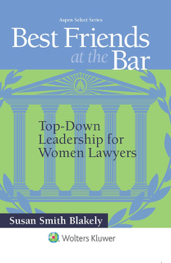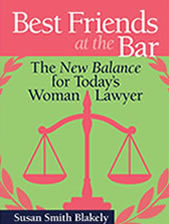Perception can be more important than fact. I learned that when I was Chief of Staff for an elected official. Politics is ripe for misperception, but the applications go far beyond that setting.
Women often are the unfortunate recipients of misperceptions. And that is especially true of women lawyers. For example, women lawyers often are judged in a harsher light than their male counterparts when they display assertiveness, self-promotion or anger, according to a survey conducted by the Center for WorkLife Law at UC Hastings College of Law for the ABA Commission on Women in the Profession and the Minority Corporate Counsel Association.
The survey asked male and female lawyers whether they felt free to express anger at work when it’s justified, whether they are rarely interrupted at work, and whether they felt penalized for assertive behavior.
Their answers differed based on gender and sometimes based on race and generated the following findings:
- Fifty-six percent of white male lawyers felt free to express anger, compared to only 40 percent of women lawyers of color and 44 percent of white women lawyers;
- Two-thirds of male lawyers said they were rarely interrupted, compared to half of the women lawyers; and
- Sixty-two percent of white male lawyers said they are not penalized for being assertive, compared to only 46 percent of women lawyers of color and 48 percent of white women lawyers.
A separate study led by Arizona State University psychology professor Jessica Salerno looked at anger in the courtroom. The study, published in Law and Human Behavior, was summarized by Psychology Today, U.S. News & World Report and ASU Now.
In that study, nearly 700 people watched videos of male or female lawyers delivering closing arguments using angry tones, and study participants were questioned about whether they would hire the lawyers. The participants used positive aspects of the angry closings to justify hiring male lawyers but referred to negative aspects of anger to justify not hiring the female lawyers.
The male lawyers, who demonstrated anger, were perceived as commanding, powerful, competent and hirable. By contrast, the women lawyers who showed anger were identified as less competent, shrill, hysterical, grating and ineffective, according to the ASU Now article. Professor Salerno concluded, as reported in U.S. News, that the study demonstrated that female lawyers can be penalized for showing the same characteristics as male lawyers.
As a result of these studies, women need to think twice about how they present themselves at the office and in the courtroom. At the office, the reward is acceptance and promotion. In the courtroom, the reward is to win.
One female trial lawyer, who is also a former judge and prosecutor, acknowledges the double standard and accepts the challenge. However, she also has the following advice for women lawyers in the courtroom: Wear dresses, low heeled shoes, little to no jewelry, smile a lot but don’t appear to be laughing.
The courtroom double standard is also examined in an Atlantic article by University of San Francisco law professor Lara Bazelon, a former public defender who interviewed more than two dozen female trial lawyers about their experiences. Bazelon says that women lawyers have to deal with sexism and biases by judges, lawyers, jurors and clients.
She begins by citing a 2001 report concluding that women lawyers face a double standard/ double bind in which they must avoid being seen as too soft or too strident, and too aggressive or not aggressive enough. To test the thesis, she interviewed women lawyers and concluded that the double standard still exists today. All of the women interviewed agreed that abandoning traits associated with being female can severely hinder delivery of a zealous defense in particular.
Bazelon says she tells her law students that “their body and demeanor will be under relentless scrutiny from every corner of the courtroom [and] that they will have to pay close attention to what they wear and how they speak and move.”
Other women lawyers take a broader view and see it as a likability/confidence issue that affects women in any leadership role. One sees the tradeoff as signaling that women need to be assertive enough to command confidence but not assertive enough to be seen as abrasive. Another describes an effective strategy as being “relentlessly pleasant.”
Still another woman lawyer cautions against choosing a strategy such as deference, which could undercut an assertive message and also may compromise effectiveness or authenticity. She is joined by a colleague who emphasizes the importance of authenticity and earning the trust of the judge and jury to show them that their stereotypes are wrong.
It is a big issue and one that can be outcome determinative in both the law firm and the courtroom. It requires sensitivity to your audience and a good bit of finessing.
Women lawyers can agree that it is not fair and should not be this way. But it still is.
We have to learn to deal with reality and hope for change.












